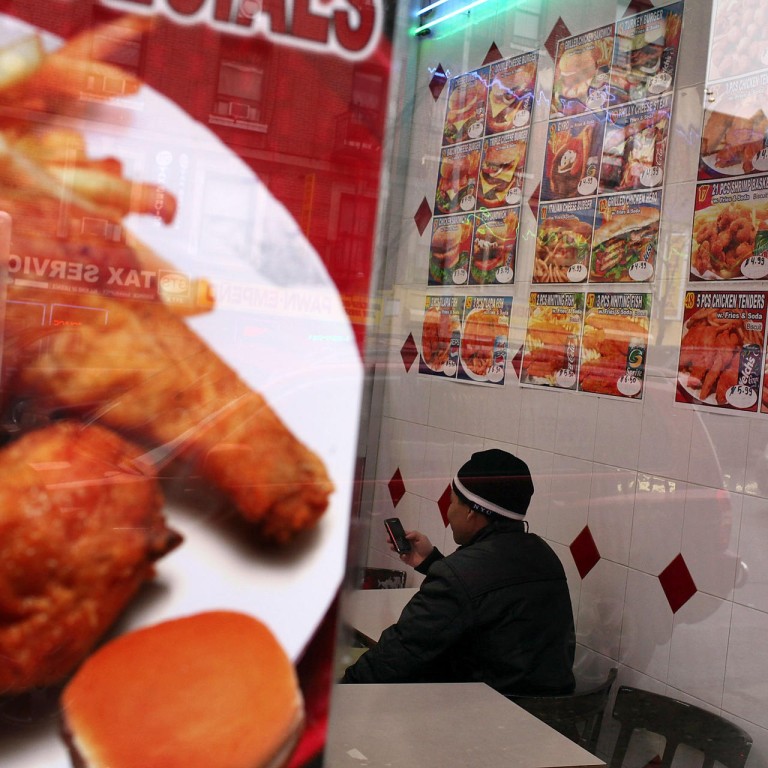
Americans’ diet now less unhealthy, unless they’re poor
Many in US have adopted somewhat healthier diets, butnutritional wealth gap has widened
Americans' eating habits have improved, except among the poor, evidence of a widening wealth gap when it comes to diet. Yet even among wealthier adults, food choices remain far from ideal, a 12-year study found.

Scores for low-income adults were lower than the average and barely budged during the years studied. They averaged almost four points lower than those for high-income adults at the beginning and the difference increased to more than six points in 2009-10.
Higher scores mean greater intake of healthy foods including vegetables, fruit, whole grains and healthy fats. High scores also mean a low risk of obesity and chronic illnesses including heart disease, strokes and diabetes. Low scores mean people face greater chances of developing those ailments.
The widening rich-poor diet gap is disconcerting and "will have important public health implications", said study co-author Dr Frank Hu of the Harvard School of Public Health. Diet-linked chronic diseases like diabetes have become more common in Americans in general, and especially in the poor, he noted.
"Declining diet quality over time may actually widen the gap between the poor and the rich," Hu said.
Harvard School of Public Health researchers developed the healthy diet index used for the study. It is similar to US federal guidelines but features additional categories including red and processed meats, sugar-sweetened drinks and alcohol.
The study authors used that index along with government estimates on trans-fat intake to evaluate information in 1999-2010 national health surveys that included interviews with people about their eating habits. The results were published on Monday in .
Hu said the widening diet gap reflected an income gap that deepened during the financial crisis and which probably made healthy food less affordable for many people. Hu also noted that inexpensive, highly processed foods are often widely available in low-income neighbourhoods.
The overall diet improvement was largely due to decreased intake of foods containing trans-fats, but the disappointing results point to a need for policy changes, including better nutrition education, Hu said.
The study authors say their results are consistent with an earlier report showing that "nearly the entire US population fell short of meeting federal dietary recommendations".
